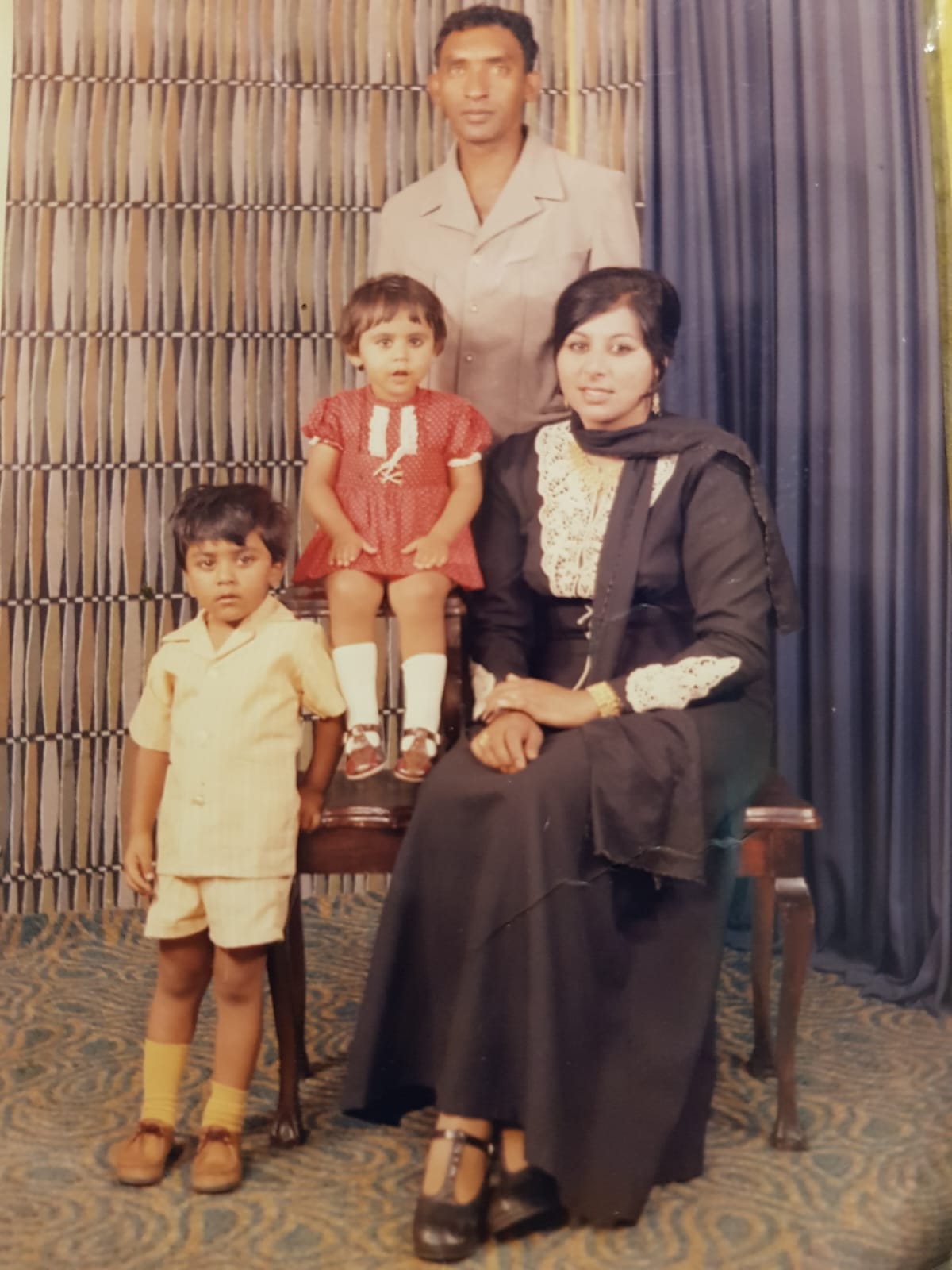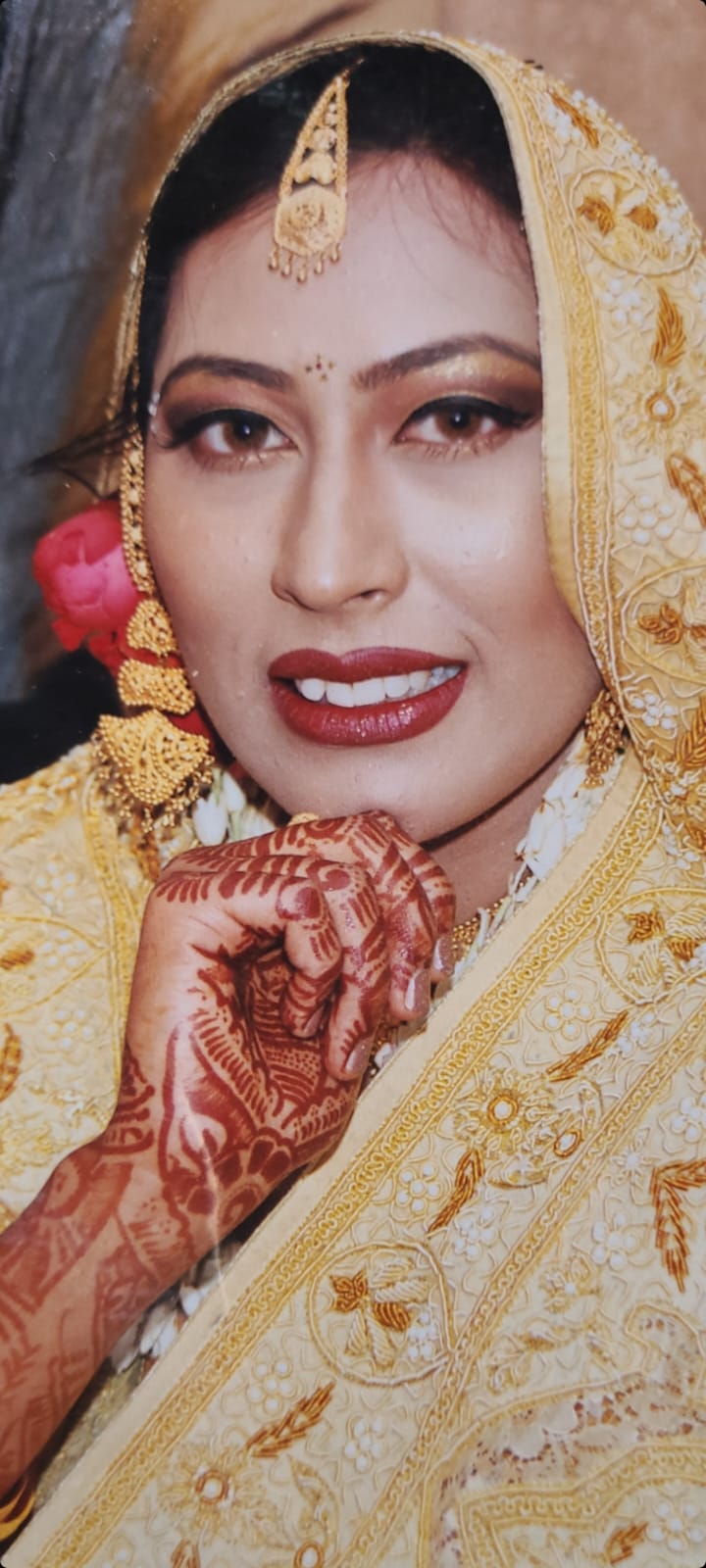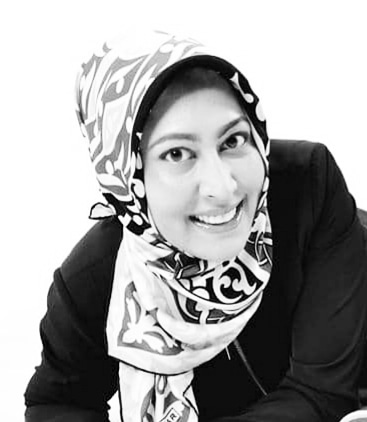Shamima Kolbasar, founder of Arzu, a leadership development entity, is an accomplished leader in the corporate world, managing multi-billion dollar budgets in a critical sector in the country, a motivational speaker and activist advocating social justice and women’s rights. Her passion for the upliftment of women is fueled by her journey of self-discovery, self-empowerment and unleashing the power of her spirit Photo Provided
Story by Shamima Azam
My name is Shamima Azam (Kolbasar), a South African woman born and raised during the apartheid era in Johannesburg. My parents were teachers, community leaders and social activists.
However, my father wanted to become an engineer or a doctor. Unfortunately, he could not pursue his studies due to Apartheid and discriminatory restrictions concerning access to the various universities.
I remember my father sharing stories about his involvement as an activist and being taken into custody and tortured. My father was young and, on the run, due to his political involvement.
He went to Cape Town, and lived with a good family who took excellent care of him. He had to go to sea with fishermen and return late at night as the police searched for him. This delayed his intention to study.
Nonetheless, he completed his studies and graduated later as a teacher. Teaching was not only my father’s career but also his vocation. He was a very dedicated teacher and a community leader.
At one stage, Muslim kids could not get leave from school for Jumuah. The maths and science classes were scheduled during this time.
My father presented the case to the Head of the Department. He won the case so the schoolchildren could go for Jumuah Salah. I admired my father’s resilience. He never harboured hatred and always had a love for humanity.
My mother grew up in Piet Retief. Her mother passed away when she was 16 years old, and she had to care for her siblings and couldn’t continue her schooling.
My mother’s family moved to Middelburg, and later, my mom was one of the first Indian women to get her driver’s licence. She was good in languages and learnt to speak Zulu fluently, besides Urdu, English, Gujarati and Afrikaans.
She was also excellent in Quran recitation. When my mother married, my father sent her to further her Quran and Tajweed studies, and my mom became a Quran teacher at LMA (Lenasia Muslim Association) and Nur ul Islam.
My parents raised us with a strong identity, grounded in values, principles and empowering beliefs that enabled me to navigate the uncertainties we faced. I completed my matric in 1990 when Nelson Mandela was released from prison, a time of great hope and transformation.

My parents relocated, and upon completing my matric, I had to leave the city of Johannesburg. For this reason, I could not pursue my studies at a full-time university. However, my love for learning and reading continued. I enrolled to study for a BCompt degree through UNISA.
We stayed in Lesedi Village on the outskirts of Witbank, Mpumalanga. We were the only Indians residing there. I had to get used to different cultures, and we interacted with other races, too. During this period, I began breaking barriers and building bridges between cultures.
When I moved to Witbank, there was a call to establish a club for classic motor cars. My father took my brother Jameel (who shared my father’s passion for cars) and also took me to the meeting.
I was nominated to become the Public Relations Officer (PRO) for the “Witbank Classic Motor Club” establishing committee. I shrank in my chair and was going to refuse, and my father immediately said my daughter would accept. My brother was nominated as a treasurer, and we would attend the meetings and events together.
For three years, I was the PRO. Our club had Scottish, Irish, Portuguese, Afrikaner and European members. It was an incredible, enriching experience, and I also learned a lot about cars. It created a deeper appreciation of our country’s different races and cultures.
Later, I married in Pakistan and settled in South Africa. I adapted to a new way of life with my husband. We were blessed with a beautiful daughter a year and a half later.

When my daughter was one year and three months old, I was offered a position in KwaZulu Natal, resulting in my separation from my family. However, with the support of my husband, we decided that it was a short-term sacrifice for a long-term benefit.
Four and a half months later, my husband was involved in a fatal accident on his way to meet me. He was only 27 years old when he passed away. My daughter was one year and nine months old. I looked at my child and thought, what life will I teach her if I give up?
I wanted my child to have every opportunity to grow up and know the grace of Allah. I knew I had to tap into every resource to survive. This was a difficult time for me as a woman and a new mother.
A verse in the Quran constantly flashed in my mind, “Don’t kill your children for fear of poverty, for I shall provide for them as well as you” (17:31). My whole life was based on this verse to go out and succeed.
I would awaken in the cold winter nights and think I was dreaming. When I realised this was my reality, I resorted to prayer and reading my Quran to tap into my spiritual strength. I would also read other books that would motivate me and enable me to set my mindset for the day.
I continued studying through UNISA. Work was tough, and despite my many challenges, I was determined to succeed. There was something that awoke within me during this period of adversity.
I had a laser-beamed focus on success and getting through this challenge. I invested in myself and my education, and I attended workshops and seminars, too.
Amidst the challenges, my life began improving. I succeeded as a Project Accountant in a male-dominated engineering and technological industry, a key sector in our country.
I received many awards and accolades and was nominated as a specialist in one of the largest SAP implementations in Africa, working with SAP teams worldwide. The head of the Leadership Institute interviewed me, and my story was shared in our company.
I am grateful to have embraced my challenges with prayer, a positive attitude, consistent focus, and action to improve my life and my daughter’s.
My daughter studies occupational therapy at the University of Cape Town (UCT). We have lived a fulfilled life and made beautiful memories together. We travelled to many countries too.
Eight years after my husband’s death, I remarried a Turkish man in Istanbul, Turkey. We settled in South Africa. I was blessed with a son, and ten years later, we divorced.
I believe Allah prepares you for every challenge. I learned some valuable lessons. In moments of weakness, no matter how many times I struggled silently, it was only my ego faltering, and I knew deep down something greater always shone within me.
I am also an activist advocating for social justice and women’s rights. I am involved with different organisations and volunteer my time when possible.
I shared my leadership journey on different platforms. I was invited to have some workshops in different parts of our country.
Growing up in a diverse country like South Africa taught me to be more resilient and tolerant of other cultures. I am grateful for my opportunities as a Muslim woman in South Africa. I continue to embrace each challenge as a stepping stone to my growth.
